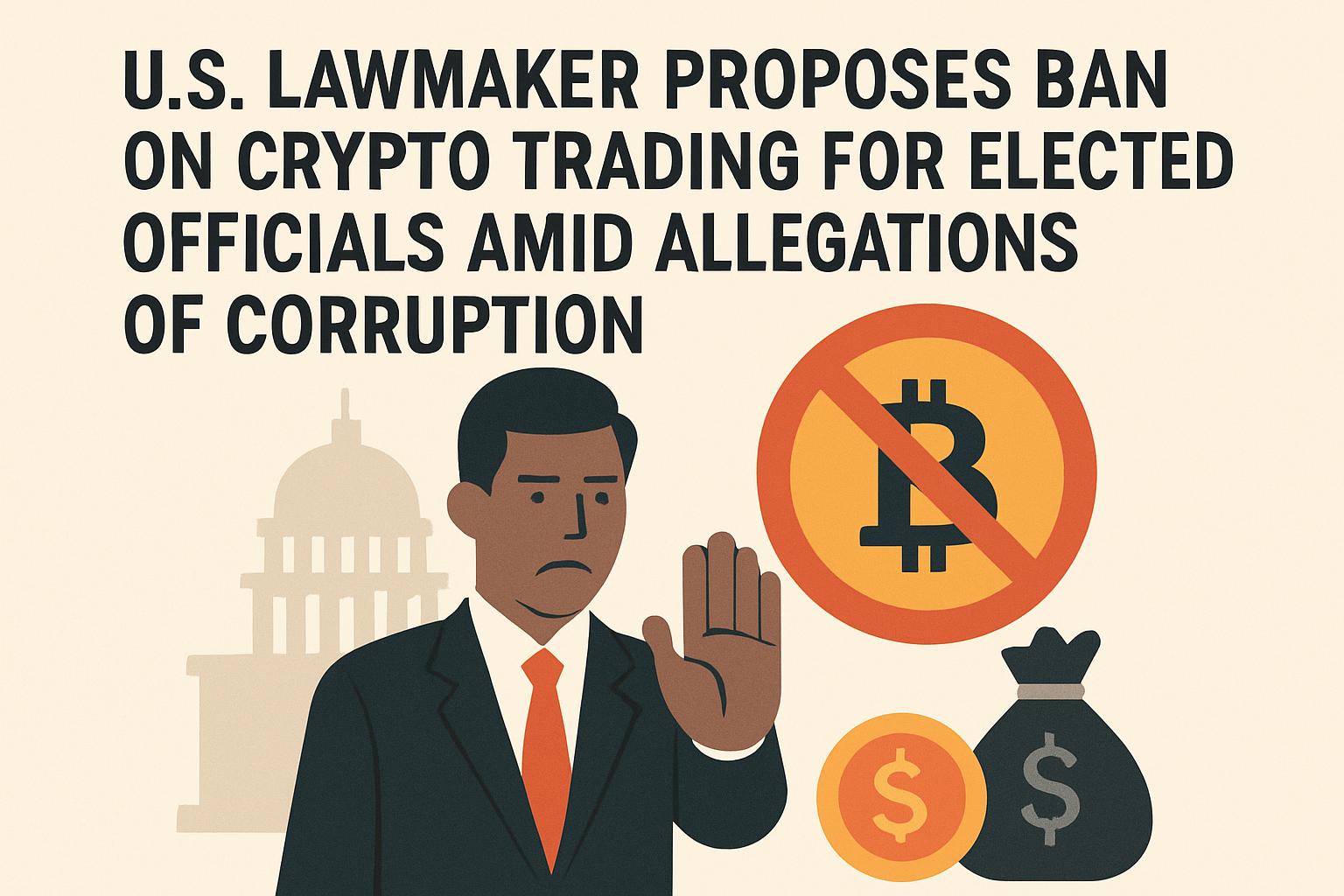In the swirling world of cryptocurrency and politics, U.S. Democratic Representative Ro Khanna from California is making waves with a bold initiative. Khanna is proposing a bill that seeks to ban all elected officials, including former President Donald Trump and his family, from engaging in stock and cryptocurrency trading. This comes amid growing concerns over potential conflicts of interest and allegations of corruption connected to the crypto sector.
The spotlight has once again fallen on the intersection of politics and crypto, driven by suspicions around World Liberty Financial (WLFI), a cryptocurrency project associated with Eric Trump, Donald Trump’s son. The allegations suggest a troubling link between the venture and the recent presidential pardon of Binance co-founder Changpeng Zhao (CZ). Khanna is vocal about his suspicions, stating, “You have a foreign billionaire involved in money laundering who leveraged presidential favors. It’s undeniable corruption.”
Allegations and Initiatives
The alleged ties between the Trump family and recent controversial events in the crypto space have sparked Khanna’s legislative proposal. He aims to introduce a new law that would prevent any elected officials from holding cryptocurrencies or receiving foreign funds. Such a bill seeks to extend its reach beyond just the Trump family, applying universally to all in office to guard against potential misuse of power and financial misconduct.
Yet, this proposed crackdown has been met with skepticism. Reports from Quiver Quant highlight Khanna’s extensive stock trading history, with records showing approximately $80.3 million in transactions in 2025 alone and a staggering total of $580 million since 2017. This track record has led some to question whether Khanna’s proposals might reveal a hypocritical stance, especially when compared to fellow Democrats like Nancy Pelosi, who holds a significant trading reputation.
A Global Concern
The implications of government officials engaged in financial markets resonate globally, where transparency and integrity remain competitive edges. As nations grapple with digital currencies and financial ethics, the challenge lies in crafting regulations that ensure responsibility without stifling innovation. Khanna’s proposed legislation could mark an important step in defining these boundaries, offering a model for international transparency.
The draft of this bill awaits its formal presentation in Congress, where it is sure to ignite debates on integrity and the safeguarding of public trust. As the world watches, the resolution of these discussions could set a precedent not only for the U.S. but for democratic nations worldwide navigating the confluence of governance and crypto innovation.

![[News] Bitcoin at a Turning Point? 10x Research Signals a Bullish Macro Shift Ahead](https://cryptoexplores.com/wp-content/uploads/2025/06/new20250616.jpg)
![[News] Binance Lists $HOME, the Gas-Free, Bridge-Free All-in-One DeFi App](https://cryptoexplores.com/wp-content/uploads/2025/06/news20250617.jpg)